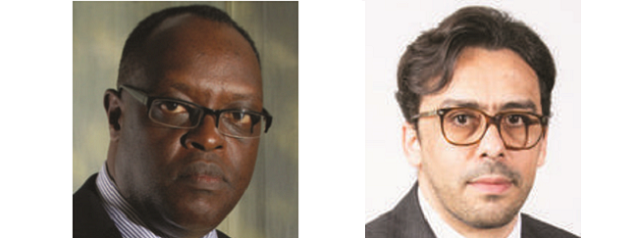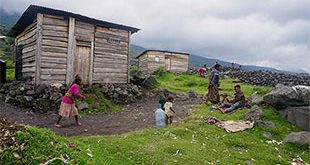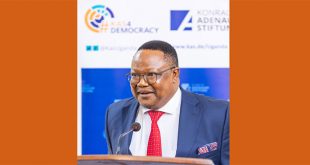
The Independent could not establish what “applicable laws and best practice” LPTIC expects or what could trigger what it calls “undermining its position as majority shareholder”.
However, it is clear from the tone of the letter that the Libyans are not allowing the takeover of UTL without putting up a fight now or in the future.
In the statement sent to The Independent on March 05, LPTIC also said it could not continue with the negotiation “due to lack of substantive engagement from stakeholders within the Uganda government in spite having tried to save the telecom firm as a majority shareholder and readiness to fund the implementation of a new turnaround strategy”.
LPTIC also noted that while negotiations were ongoing, it continued to fund the substantial amount of working capital being incurred by UTL on a month-by-month basis.
“This was done to ensure that employee salaries and essential creditors could be paid and the business continues to operate in spite of making no sufficient operating profits partly due to the substantial amount of unpaid debt owed by the Government of Uganda for services provided to support the country’s services and infrastructure.”
Locally, the Libyan ambassador to Uganda, Fawazi Abu Katif, has since 2015 been frantically battling to ensure that the government does not take over UTL. Ambassador Latif first notified LPTIC of the Uganda government’s intention two years ago, in a move that sparked the intense negotiations.
LPTIC turnaround plan
In an earlier exclusive interview with The Independent before the takeover on Feb 25, Faisel Gergab, the chairman of LPTIC said according to their proposed turnaround plan, it wanted the government of Uganda to convert the debt it owes to UTL into LPTIC equity.
Also, the government was to accept to expunge the liabilities for actuarial amounts of pensions which exceeded the statutory contributions of 10% for the company’s former workers during the time of privatization.
“These additional liabilities were never for UTL and were the Governments under the Privatisation law,” he said.
Agreeing on these two issues was to enable shareholders raise about US$48million (Shs170bn) through the sale of towers and funding from the LPTIC to revamp UTL.
The money involved is said to be about Shs18 billion owed to UTL and its portion of 31% of the US$48 million (Shs52 billion) capital call under the LPTIC-proposed salvage plan.
This, however, is not the first time LPTIC is making a capital call and expecting Uganda government’s debt to be converted into equity.
When its subsidiary, UCOM, first acquired it in 2000 it bought 51% of UTL. In 2006, the shareholders made a capital call of US$26.4million as additional equity to finance network upgrade and expansion.
In the process, the government agreed to reduce its shareholdings to 31% and allowed UCOM to raise the entire amount of the capital call which resulted in an increase of majority shareholding to 69% to boost its performance.
To clinch that deal in 2006, President Museveni met bosses of UCOM which is a British Virgin Islands-registered company and gave them the UTL shares for Shs25 billion in an opaque deal without prior advertising.
At the time, UTL was acquired by Libya Africa Investment Portfolio (LAP), the agency Gadhafi was using to sprinkle investments across Africa.
LAP acquired UTL on behalf of its subsidiary Greencom. It was argued that UTL needed US$86 million to boost its business of which US$26.4 million would be equity from shareholders. Uganda, in proportion to its shareholding, was supposed to inject US$12.9 million which it did not have.
From that time, in 2007, UTL’s performance has been characterized by heavy indebtedness, decline in market share and losses as a result of inadequate investment, competitive pressure, dilapidated network and governance challenges.
The situation worsened when UN imposed sanctions on the Libyan assets at the height of political turmoil in the West African state in 2011 affecting capital inflow to the company.
Though UCOM resumed control of the company two years later following lifting of international sanctions against Libya, LIPTIC has not been able to inject more capital into the UTL citing disagreement with the Ugandan government.
Meanwhile, UTL has sunk from the dominant position of major player in the nascent privatized telecom sector, to relegation as a cash-strapped company operating decadent 2G and 3G technology with the Uganda government as its main (non-paying) client.
Its forte has been the disused fixed line connection to government ministries, departments and agencies, with a significant fiber infrastructure and wireless broadband facilities.
The company has been unable to upgrade its technology to match competitors operating latest 4G technology.
This led to massive migration of its subscribers to other networks resulting into a sharp decline in its customers from approximately 2million in the 2000’s to 700,000 at the moment.
This represents only 3% market share of Uganda’s telecom industry, whose subscriber base now stands at 23million for both fixed and mobile.
 The Independent Uganda: You get the Truth we Pay the Price
The Independent Uganda: You get the Truth we Pay the Price


